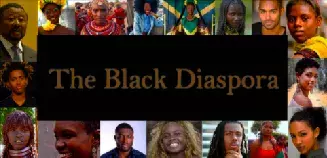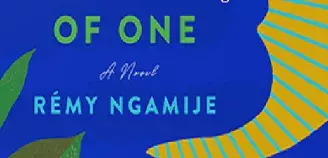For this year's Black History Month, we at Capita have changed our logo to mark the occasion.
For the month of October, the Capita logo is complimented with the red, gold and green colours that represent Pan-Africaism; a cultural and political ideology that acknowledges the common struggle and interest of people from African descent and seeks to unify black people across the world to stand as one people.
The pan-African movement was founded and led by Marcus Garvey, a Jamaican-born black nationalist and leader. Garvey first introduced the Pan Africa flag in 1920 with the colours red, black and green; red representing the noble blood that unites all people of African ancestry, the colour black for the people, green for the rich land of Africa.
The 1930s saw the birth of the Rastafari movement in Jamaica. The Rastafari movement is a religious and political movement that unifies ideas from Protestant Christianity, mysticism and pan-African ideology. Drawing from Old Testament stories, especially that of Exodus, Rastafarians believe people of African descent around the world to be “exiles in Babylon.” Rastafarians believe that they are being tested by Jah (or God) through slavery and the existence of economic injustice and racial “downpression”. The movement adopted the colours red, yellow and green from the Ethiopian flag, a site of dynastic power, representing the ultimate home of all Africans.
The 1930s saw the birth of the Rastafari movement in Jamaica. The Rastafari movement is a religious and political movement that unifies ideas from Protestant Christianity, mysticism and pan-African ideology. Drawing from Old Testament stories, especially that of Exodus, Rastafarians believe people of African descent around the world to be “exiles in Babylon.” Rastafarians believe that they are being tested by Jah (or God) through slavery and the existence of economic injustice and racial “downpression”. The movement adopted the colours red, yellow and green from the Ethiopian flag, a site of dynastic power, representing the ultimate home of all Africans.
The colours represent the blood spilled by black people (red); peace and harmony between Africa's various ethnic and religious groups (yellow); and hope, as well as the African land and its fertility (green).
We seek to unify all people under one world of equal opportunity for all. In order to do this, we recognise the importance of collective reflection of the history that lies behind us and acknowledge the struggles and triumphs of our ancestors, and of those that are alive today for those that will carry on after we are gone.
Black History Month is championed by Capita as a whole and is led by our Black Employee Network group.
We are Proud To Be Black, Proud to be Unified and Proud to be Capita.
Marvin Fray - Co-Chair of Capita's EMBRACE Employee Network Group.
BEN - Capita Excellence Event
Our Capita BEN panel will feature a line up of speakers reflecting on their journey to the top of their respective career ladders while sharing their thoughts on how Black History Month (BHM) can be used to drive diversity and inclusion.
Culture talks
Three part series of 45 minute sessions exploring the cultures of Jamaica, Barbados and across the Atlantic to 54 countries in Africa, understanding the people and giving an insight into their history and local delicacies.
Meet a Black Author
We are delighted to welcome the award winning, wandan-born Namibian writer
and photographer, Rémy Ngamije to Capita's BHM celebration on Tuesday 19th October.
Afrobeats
Afrobeats (not to be confused with Afrobeat or Afroswing), also known as Afro-pop, Afro-fusion (also styled as Afropop and Afrofusion), is an umbrella term to describe popular music from West Africa and the diaspora that initially developed in Nigeria, Ghana, and the UK in the 2000s and 2010s. Afrobeats is less of a style per se, and more of a descriptor for the fusion of sounds flowing out of Ghana and Nigeria. Genres such as hiplife, jùjú music, highlife and naija beats, among others, were amalgamated under the term Afrobeat.
B.E.N BHM 2021 Playlist
Curated by Otis Parris - Managed Service MDM Analyst, Capita O2 Partnership Having grown up in the sixties and seventies and in my humble opinion when the best music was made. Most American artistes such as Sam Cook had direct experience when he and his band was was turned away from hotel when touring. So his song is a reflection of his experience. Along with artistes from Motown who were tired of singing love song especially Marvin Gaye. It was music and the lyrics and wanting to be more socially conscious and political. So all in all to Marvin’s “What’s Going” We’re still living in a “Ball of Confusion”, because we are “Everyday People”, saying we’re “Black and Proud” still “ A change is Gonna Come”
Soca music
Soca music is a genre of music defined by Lord Shorty, its inventor, as the Soul of Calypso, African and East Indian rhythms. It is a genre of music that originated in Trinidad and Tobago in the early 1970s and developed into a range of styles during the 1980s and after.
Soca was initially developed by Lord Shorty in an effort to revive traditional Calypso, the popularity of which had been flagging amongst younger generations in Trinidad due to the rise in popularity of Reggae from Jamaica and Soul and Funk from the USA. Soca is an offshoot of Kaiso/Calypso, with influences from East Indian rhythms and hooks.
African Favourites playlist
Curated by Jeroen Egge - Managing Consultant - Government Services Programme Delivery
I remember exactly when I started listening to Orchestra Baobab. I was pointed into the direction of an African music compilation by a Malawian friend. He wanted me to listen to Doctor King’esi, which I thought was very good, but after leaving the CD on repeat my consciousness eventually alighted on another track. Orchestra Baobab – ‘On Verra Ca’ was the song.
I’d listened to African music a lot before then (probably not enough if I’d missed Orchestra Baobab). I think it probably actually started with Alpha Blondy – the Ivory Coast’s Bob Marley. As a kid, I’d always enjoyed Ladysmith Black Mambazo, who my grandmother loved. Then buying the album Mouffou by Salif Keita in a random musical exploration phase. From there I got into a few others - Toumane Diabate, Fela Kuti, Manecas Costa, Habib Koite, Ali Farka Toure, Baaba Maal, Angelique Kidjo, Youssou N’Dour and more. So for me, music from the continent of Africa has been a journey of about 30 years. But my favourite is Orchestra Baobab.
Reggae
Reggae is a music genre that originated in Jamaica in the late 1960s. The term also denotes the modern popular music of Jamaica and its diaspora. A 1968 single by Toots and the Maytals, "Do the Reggay" was the first popular song to use the word "reggae", effectively naming the genre and introducing it to a global audience.
While sometimes used in a broad sense to refer to most types of popular Jamaican dance music, the term reggae more properly denotes a particular music style that was strongly influenced by traditional mento as well as American jazz and rhythm and blues, and evolved out of the earlier genres ska and rocksteady.
As part of Black History Month we encourage you to learn more about Black Culture and/or Black people who have made a significant impact on society; some of whom you may never have heard of.
One great way to do this is by watching films that shine a light on those individuals, groups or events and sharing that with family, friends and your work family. Cosy up with your families for movie night with these movie recommendations
- King of Boys follows the story of Alhaja Eniola Salami, a businesswoman and philanthropist with a checkered past and a promising political future.
- Why did I get married The film is about the difficulty of maintaining a solid relationship in modern times.
A record-breaking Marlin and a dish for Saints.
Michelle Hooley - Training Manager, Secure Solutions & Services
St Helena (where my dad is from) is a small British island, it is very remote, inhabited by around 6000 people and more than 1200 miles from the nearest major landmass. Until 2017 the only way to the island was by boat from Ascension Island or Cape Town. Fishing is popular in St Helena with my Great Grandad catching a record-breaking Marlin in 1963. These spicy fishcakes are a well-known dish for Saints to eat... really simple to make and great for lunch or dinner. Give them a try!
Ingredients
450g fish – tuna or mackerel ideally fresh but I often use canned tuna 450g potatoes
1 large onion – finely chopped
2 rashers of bacon – finely chopped
Chilli – finely chopped
Pinch of thyme or mixed herbs will also work
2 tablespoons of chopped parsley
1 egg – beaten
You could also add salt and pepper and garlic granules
Method
Boil the potatoes and mash then set aside to cool
Wash and shred the fish (cook if using fresh fish)
Fry the onion until soft
Add bacon, parsley thyme and chilli to the onion and fry until lightly brown
Combine the potato, fish and bacon and onion mix together with the egg in a large bowl and mix well
Shape into patties ½ inch thick and 3 inches round
Fry in hot oil for 3 mins on each side
How about digging into some books to soak up some of the lesser known stories and marvels of our heritage.
- The Other Black Girl By Zakiya Dalila Harris
- Queenie By Candice Carty-Williams
- The Underground Railroad By Colson Whitehead
- The Lamplighter By Jackie Kay
- The Old Drift by Namwali Serpell
- My Sister the Serial Killer by Oyinkan Braithwaite
- Beloved by Toni Morrison
- Long Way Down by Jason Reynolds
- Cinderella is Dead by Kalynn Bayron
At the heart of our transformation are the people that make it happen. If you have the ambition to go far and the imagination to see beyond the ordinary, there’s no better place to be. Discover careers at Capita.

Carey Williamson, Strategy Consulting Director
Carey is the Director of International Consulting in Capita Experience, having joined in 2017. Previously Head of Pathway Practice in CPS he developed Analysts into some of our brightest Consultants using his L.O.V.E. Leadership, Opportunity, Vocation and Excellence vision and strategy.

Adebimpe Makinde, Principal Consultant, Public Services division
Adebimpe is an accomplished Digital Business Analyst who believes strongly that everyone should be able to bring their whole selves to work and thrive without limitation and also is a member of the Black lives matter advisory board to the ExCo.






